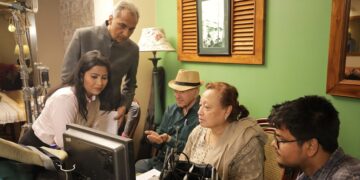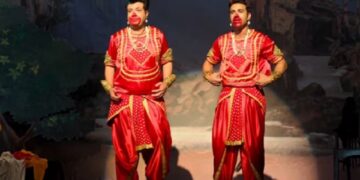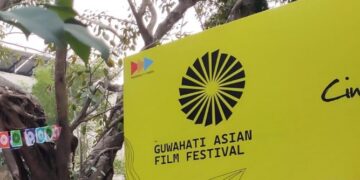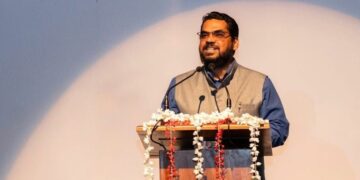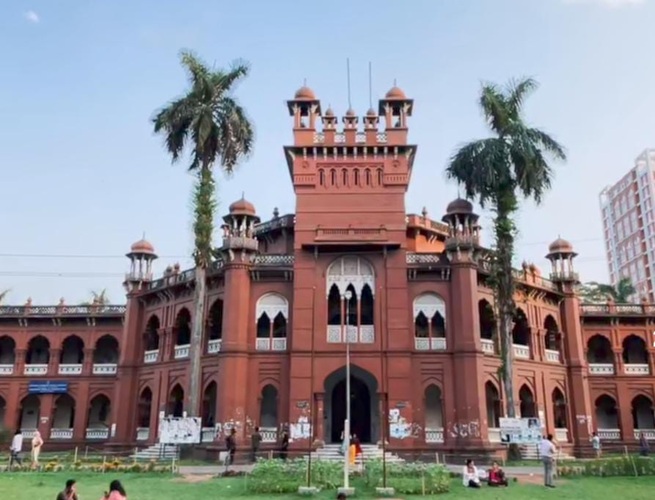In 1947-48, in the backdrop of the Partition of India, the Dhaka University’s Central Students Union (DUCSU) election threw up an interesting General Secretary – Ghulam Azam – who years later rose to infamy as the amir of the Jamaat-e-Islami.
He repeated the feat in the 1949 election.
Azam joined the Jamaat-e-Islami in 1954 and was elected as the party’s East Pakistan wing general secretary later.
But in the 2025 DUCSU election, held on September 9, the Jamaat’s students’ wing, Islami Chhatra Shibir, swept the polls, winning all the posts – vice-president, general secretary and assistant general secretary.
In the process, the Shibir demolished the BNP’s Chhatra Dal which trailed behind by miles in the final vote count. The total votes polled was pegged at 78.33 percent.
While it would be too early to say outright that the DUCSU election result is a portend of things to come in the future at the national level, it will certainly act as force multiplier for the Jamaat’e electoral prospects.
Since the cataclysmic events of August 5, 2024, the Jamaat has been circumspect about its participation in any early election.
This position might not change considering that the DUCSU election is certainly not a barometer to gauge Bangladesh’s mood which has undergone a decisive shift since the heady days immediately following August 5, 2024.
The nominees of the National Citizens’ Party, formerly comprising students who led the July-August 2024 movement, were reduced to also ran.
As a party, the NCP today stands discredited. Its office bearers, the Sarjis Alams, the Hasnat Abdullahs, the Nahid Islams, the Asif Mahmuds and sundry other student coordinators have been singed by allegations of corruption, nepotism and described as greedy, profligate and squanderers.
This taint will remain and prevent it from functioning in any meaningful way either at the national or university level.
Shibir’s victory, built on a combination of political diligence and huge cash flow, is certainly huge, but there are some signs that it wasn’t uniform across all the 18 halls within the university. The halls are central to a Dhaka University student’s on-campus identity.
In Jagannath Hall, the largest residential unit with a significant number drawn from the minority community, the Shibir’s vice-president (VP) nominee Abu Sadek Qayyum, whose baby-face sports a wispy moustache and beard, matched by stylish shirts and jeans, polled only 10 votes.
While Dhaka University’s total student strength is over 49,000, a significant portion of this number – 52 percent – are non-resident.
While the Shibir recorded an enviable victory – unthinkable till a few years ago – the net loser is the Chhatra Dal-BNP which, after August 5 last year and the ban on the Awami League and its affiliate organisations in May 2025, was under the impression that it was only sniffing distance from power at the national level.
The Chhatra Dal-BNP combine took to wanton loot and plunder and egregious violence: their cadres and supporters took part, along with zubba-clad and turbaned Jamaat and Shibir lumpens, to destroy historic and iconic symbols of liberation, Sheikh Mujib’s residence, and indulged in mindless murder.
The Chhatra Dal-BNP combine’s men took to the same terror tactics and thuggish politics that it had branded the Chhatra League-Awami League.
BNP leaders were found wanting while trying to explain – unapologetically, of course – away the cadres’ excesses in the wake of the overall lawlessness in Dhaka and the countryside.
On the other hand, the Shibir-Jamaat activists and leaders played a deft hand.
By working on the inherent weakness of the Mohammad Yunus-led interim regime, they squirmed their way into the levers of government, leaning on Bangladesh’s confused and foolish decision makers to plant their men – and women – in the rickety bureaucratic and police structures.
A section of the Chhatra Dal-BNP leadership knew last evening (September 9) after polling was over that the combine was headed for a resounding defeat in the Dhaka University election.
The BNP, which earlier believed that the political conditions after August 5, 2024, were in its favour, played the wrong cards.
After consistently taking a stand that the Awami League should not be banned, the party leadership swerved 180 degrees, welcoming the ban after it was imposed in May 2025.
This disgraceful departure from sticking to “normal politics”, which was the norm even when the Awami League was in power, was the beginning of a series of missteps which included BNP’s London-resident acting general secretary Tarique Rahman’s inexplicable meeting with Yunus.
From its earlier position on elections in December 2025, the BNP settled for polls in February 2026.
It did not seek firm dates from Yunus. The only benefit accrued to Tarique Rahman against whom cases for heinous crimes now stand swept clean.
The DUCSU elections showed that plenty of money was pumped in, revealing that the Shibir-Jamaat combine has access to sufficient funds and resources that can fuel Bangladesh’s new politics.
Not all Shibir cadres are zubba-clad thugs; many are like Gen-Z youngsters in jeans, sneakers and fashionable T-shirts.
Just as not all Jamaat leaders are not kurta-wearing and topi-bearing mullahs, many of them cannot be distinguished from the corporate types in suits and neckties.
These are signs that Bangladesh’s socio-religious landscape is undergoing a profound transformation: much of secular Bangladesh must realise that the Jamaat, which the liberals believe does not command more than 7-8 percent of the popular vote at the national level, is a force to reckon with.
And it has the backing of a powerful force – the US.
The Awami League leadership, still licking their wounds in Delhi and Kolkata after their shock exit in August 2024, might be experiencing schadenfreude.
ALSO READ: Arunachal Pradesh CM felicitates 140 civil services achievers, urges service with integrity
Indeed, political sections in Bangladesh suspect that the rump Chhatra League may have voted for Shibir nominees for two reasons – a) for survival and b) to defeat the Chhatra Dal, its sworn enemy on the streets.
Other Awami League leaders admitted that the Shibir’s victory could be traced to the “soft Islamism” of the party leadership which, a few years ago, had paved the way for the easy and hassle-free admission of madrassa students to Dhaka University.
The DUCSU result should be a wake-up call for India whose diplomatic and security apparatus – or whatever is left of it in Bangladesh – must not only take note of the DUCSU election results but shake off their indolence, inaction and passivity.
The enforced disengagement from Bangladesh’s politics and security developments could be costly in the future, unless this pronounced docility is rank cynicism that is being pursued for electoral gains in West Bengal and Assam where raising the spectre of Islamic fundamentalism across the border could fetch votes in the two states.
This approach can potentially backfire at the domestic level.




